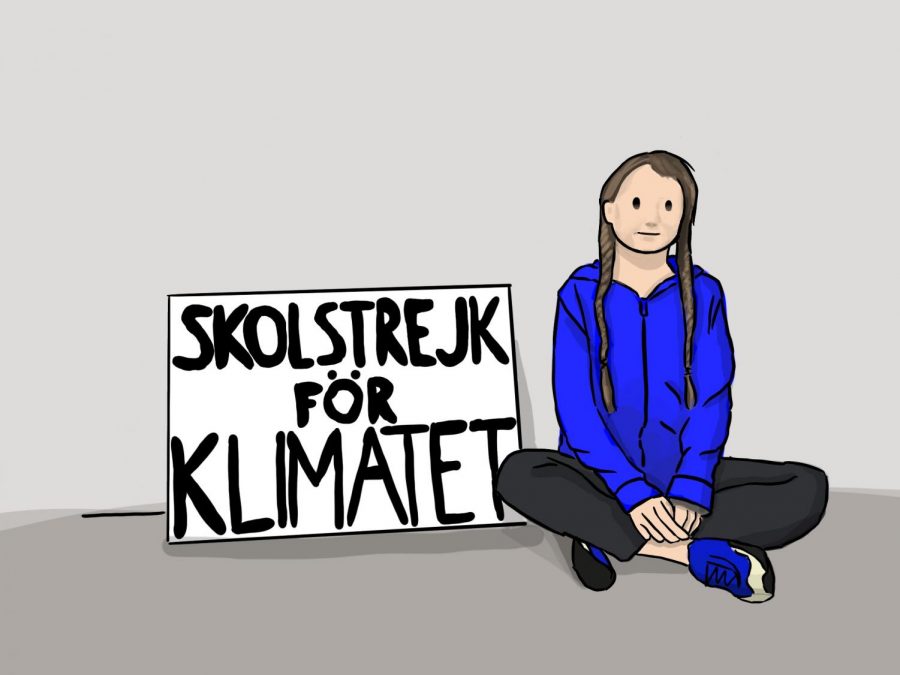Thunberg: Influencer or Figurehead?
Thunberg’s strikes began in March.
November 7, 2019
In August of 2018, the Swedish then-14-year-old Greta Thunberg began rising into the international spotlight. Every Friday, she would strike from school in protest of the failure of political leaders to take action against climate change. Her protests gained recognition in the public eye through the internet, and in late March of the following year, the first Global School Strike for Climate took place, led by Thunberg herself. More strikes have followed, and Thunberg’s impact continues to grow. Thunberg has been nominated for the Nobel Peace prize, as well as other commendations for her work in environmental activism.
As she acquires more influence, however, she has also begun to generate controversy. Some make the argument that she is not taking enough action to actually do anything about the climate but merely speaking and condemning others. Additionally, some feel that she is nothing more than a figurehead that political leaders can support on the surface to increase their popularity, while continuing to commit unsustainable and ecologically irresponsible actions covertly.
Thunberg’s actions of raising awareness about the ever-growing threat of climate change to the general public—speaking directly to world leaders and encouraging protests—are undeniably necessary and admirable. Raising awareness is an essential first step in making any kind of change. The issue lies in whether raising awareness is the only thing you do. Thunberg’s main impact over the past year has been motivating the global climate strikes, which have become a massive phenomenon. Her success with these strikes has brought some of the most influential world leaders into her audience, allowing Thunberg to be a channel for millions of young people and a voice for their fear and anger about the state of the climate. But unless her words and the protests actually motivate these powerful people to make a change, what is Thunberg really doing? The future of our world lies in the actions of corporations and leaders, not, unfortunately, in those of the children who will be most affected by them. And, as far as the sustainability of these actions goes, over the past year, through Thunberg’s rise into fame, not too much has changed.
The United States is still out of the Paris Climate Agreement. US gas and oil output is set to rise by 25% over the next decade. Earth overshoot day—the point at which the world has used more resources than it can regenerate that year for that calendar year—was marked down on July 29th, 2019, the earliest overshoot date since environmentalists began recording it in the 1970’s. If Thunberg’s influence, awareness-raising, and protests do not begin forcing the hands of powerful people into using their power to take climate action, then the people making arguments against her do actually have a point. This is not to discredit Thunberg entirely. Many opposing her use ridiculous and disrespectful smear methods in addition to bringing up this valid point, which weakens their arguments against her. And again, raising awareness is an important first step, and the protests she has organized are massive—perhaps massive enough to convince leaders that committing sustainable acts would be better for their long-term careers.
For a girl so young, what Thunberg has done is incredible—however the question of whether she is truly a changemaker remains. It seems that only hindsight will illuminate an answer.
This piece also appears in our October 2019 print edition.










